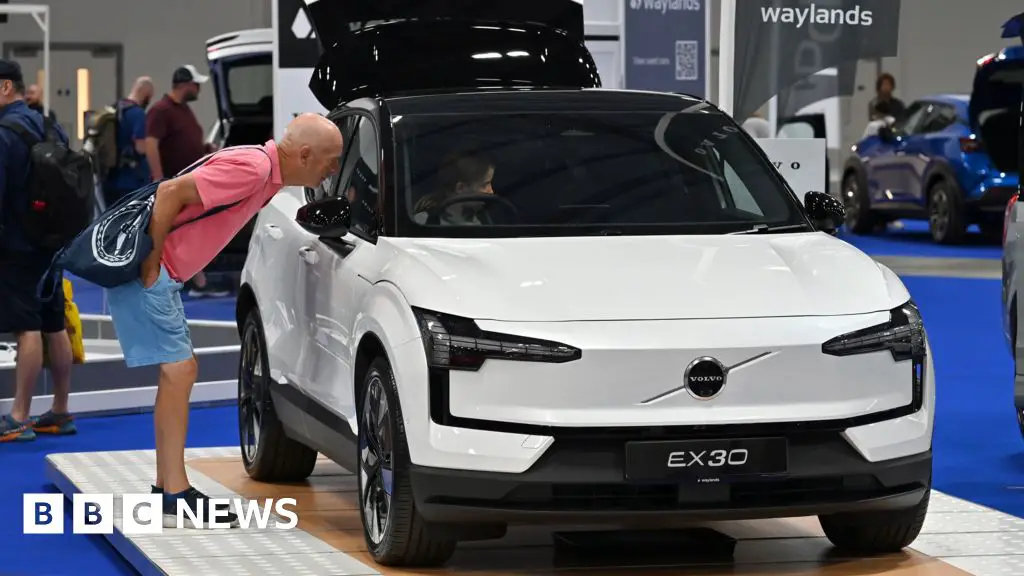
Volvo now expects at least 90% of its output to be made up of both electric cars and plug-in hybrids by 2030.
The Swedish company may also sell a small number of so-called mild hybrids, which are more conventional vehicles with limited electrical assistance.
“We are resolute in our belief that our future is electric,” said Jim Rowan, chief executive of Volvo, in a statement.
“However, it is clear that the transition to electrification will not be linear, and customers and markets are moving at different speeds.”
The company also said the business climate for EVs had changed, due to factors such as a slow rollout of charging infrastructure and the withdrawal of consumer incentives.
Volvo is majority-owned by Chinese car giant Geely and because it uses factories in China, it will also be affected by tariffs on imports of Chinese-made EVs in Europe and North America.
Last week, Canada announced it was imposing a 100% tariff on imports of China-made electric vehicles, after similar announcements by the US and the EU.
Western countries have accused China of subsidising its EV industry, giving its car makers an unfair advantage.
China has rejected those allegations and criticised the tariffs as “discriminatory”.
Ford has also been scaling back on its EV ambitions. Just last month, the US car giant announced it was scrapping plans for a large, three-row, all-electric sport utility vehicles (SUVs) and postponing the launch of its next electric pick-up truck.
Its rival General Motors has also been cutting EV production goals in the last year.







